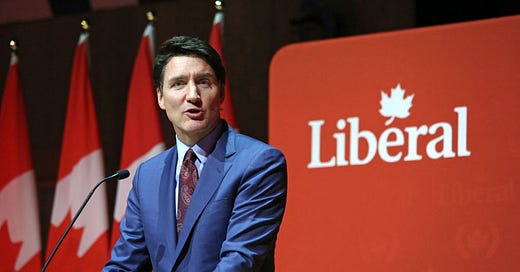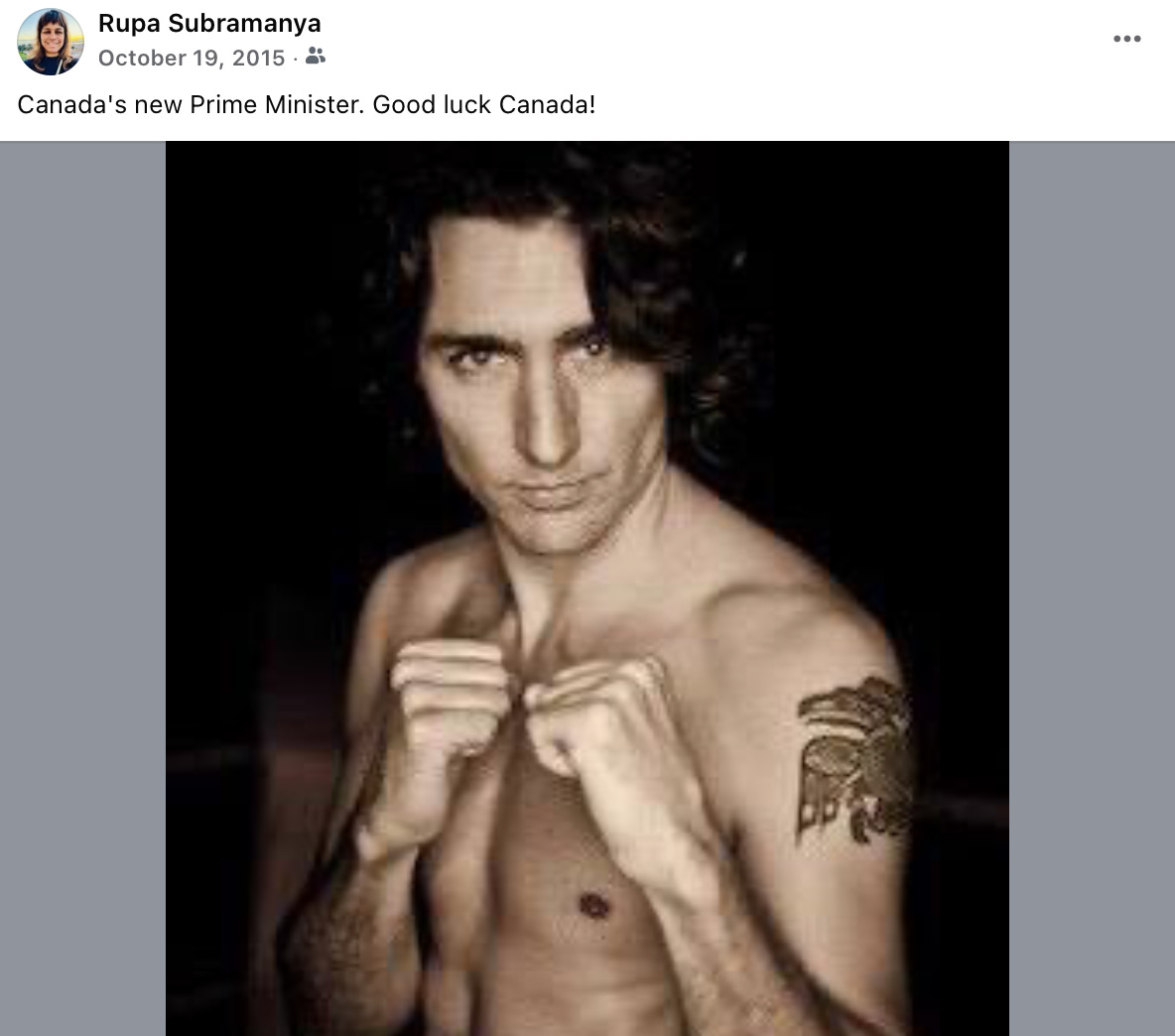
The Free Press

On October 19, 2015, as 43-year-old Justin Trudeau swept to power with a historic win, which many saw as the dawn of a progressive era in Canadian politics, I took to Facebook somewhat skeptical, sharing an iconic image of him taken during a charity boxing match against Conservative Senator Patrick Brazeau on March 31, 2012.
Fit, shirtless, and tattooed, Trudeau was in a boxing ring, fists raised as he stared intently at the camera. I captioned it, “Canada’s new Prime Minister. Good luck, Canada!”
On Twitter, back when we had a 140-character limit and grammar often went out the window, I wrote: “Scary what @JustinTrudeau promises to do if he’s PM. Canadians benefited from @pmharper wise stewardship of economy.”
The comments on my post lit up with remarks on his good looks. My response? “Let’s hope he’s easier on the pocketbook and carries his weight in international relations.”
To me the message of Trudeau’s win was clear: Canada was about to double down on socialism and a progressive agenda led by a charismatic and young leader whose main selling point was his photogenic appeal rather than his political substance. At the time, skepticism about Trudeau was rare, almost taboo. Any criticism was drowned out by a wave of euphoria bordering on adulation.
Ten years later, the mood has shifted dramatically. With Trudeau announcing his resignation, there’s a sense of relief across the country that he will no longer be prime minister. In the western province of British Columbia, a Dairy Queen was offering “Trudeau resignation special $2 burgers.”
My fellow Canadians are struggling. In a recent piece for The Free Press, I spoke to many of them, who were initially taken in by his charm and good looks or his promise of legalizing cannabis and saving the planet, and are now expressing buyer’s remorse, as they are unable to make ends meet.
An International Monetary Fund forecast shows that Canada’s national income per capita, which was once around 80 percent of America’s national income per capita in the years leading up to the pandemic, is now on track to drop to just 70 percent of America’s by 2025—the lowest in decades.
Trudeau will leave behind a country riddled with problems: a stagnant economy, high unemployment, record-high government spending, record-high immigration that has strained our resources, and a housing crisis that has pushed young professionals out of the market. Add to that the geopolitical threat of a massive 25 percent across-the-board tariff mooted by incoming President Donald Trump, who sees Canada as a big problem when it comes to illegal migration and drugs entering the U.S.
Now 53, Trudeau will also leave behind a country fully embedded in his divisive progressive agenda and diversity, equity, and inclusion initiatives while America seems to be moving in the opposite direction. He also presided over a censorship regime that was unprecedented in my country’s history. Take, for example, the truckers’ protest, which descended on the capital in the winter of 2022, to rally against harsh vaccine mandates—among the most stringent in the advanced world. Trudeau’s response was to invoke draconian emergency powers, including the debanking of innocent people whose only crime was to support the truckers with a few bucks of their savings.
Trudeau once famously declared that Canada is the world’s first “post-national state,” with no unique identity. Indeed, a recent poll shows a significant decline in Canucks’ pride and attachment to their country, with the percentage of Canadians who are “very proud” to be Canadian dropping from 78 percent in 1985 to 34 percent in 2024. Additionally, the proportion of Canadians expressing a “deep emotional attachment” to the country has decreased from 65 percent in 1991 to 49 percent in 2024.
Many Canadians now believe that the damage done under Trudeau is irreparable. I recently wrote about how some are even contemplating merging with the U.S., saying they’ll take Trump up on his proposal to make their country the 51st state. And herein lies the crux of the matter: Canadians themselves are just as complicit in this decline. A deep-seated culture of socialism, long ingrained in the fabric of the country and predating Trudeau, has sadly fostered a mentality that seeks the easy way out—in this case, looking to Uncle Sam to solve our problems instead of confronting the mess at home.
The “honourable” thing for Trudeau to do would have been to let Parliament reconvene as scheduled at the end of January, face a confidence vote, and, if defeated, lead his Liberal Party into a general election, Philippe Lagassé, a constitutional expert at Ottawa’s Carleton University, told me.
Instead, he resigned. Even as he fell on his sword, Trudeau called himself a “fighter,” perhaps hoping to leave us with that early image of him, fists raised in the boxing ring. Instead, he’s chosen to abandon the fight—leaving his country in a state of chaos.





